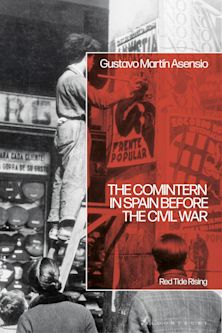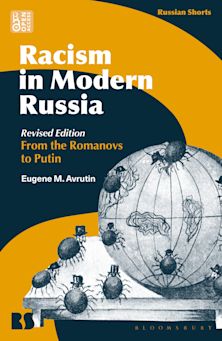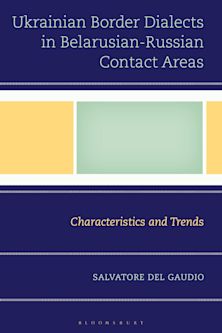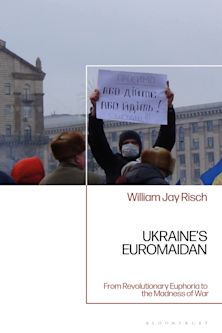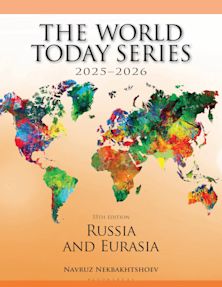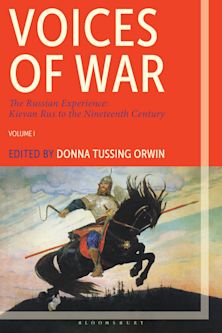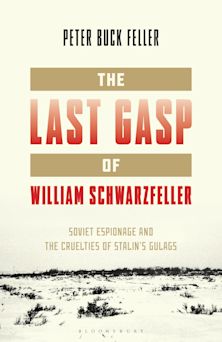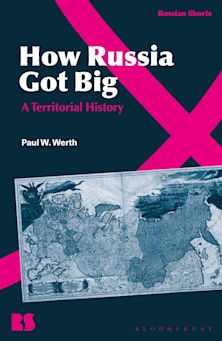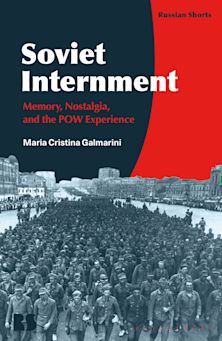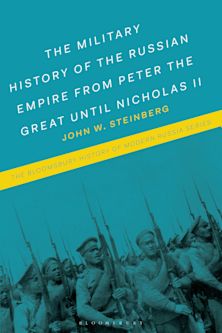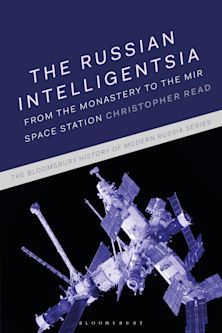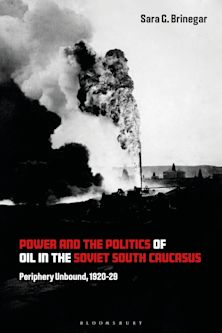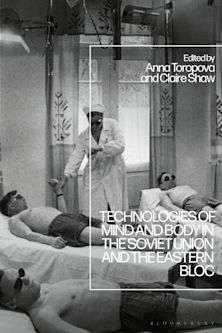- Home
- ACADEMIC
- History
- Russian History
- Russian/Soviet Studies in the United States, Amerikanistika in Russia
Russian/Soviet Studies in the United States, Amerikanistika in Russia
Mutual Representations in Academic Projects
Ivan Kurilla (Anthology Editor) , Victoria I. Zhuravleva (Anthology Editor) , Olga Yu. Antsyferova (Contributor) , Marina B. Bulanova (Contributor) , Richard T. De George (Contributor) , David C. Engerman (Contributor) , Milla Fedorova (Contributor) , Vladimir Gel'man (Contributor) , Mark Kramer (Contributor) , Alexander I. Kubyshkin (Contributor) , Ivan Kurilla (Contributor) , Vladimir V. Noskov (Contributor) , Alexander B. Okun (Contributor) , Norman E. Saul (Contributor) , Iana V. Shchetinskaia (Contributor) , Vladimir V. Sogrin (Contributor) , Ivan Tsvetkov (Contributor) , William B. Whisenhunt (Contributor) , Sergei I. Zhuk (Contributor) , Victoria I. Zhuravleva (Contributor)
Russian/Soviet Studies in the United States, Amerikanistika in Russia
Mutual Representations in Academic Projects
Ivan Kurilla (Anthology Editor) , Victoria I. Zhuravleva (Anthology Editor) , Olga Yu. Antsyferova (Contributor) , Marina B. Bulanova (Contributor) , Richard T. De George (Contributor) , David C. Engerman (Contributor) , Milla Fedorova (Contributor) , Vladimir Gel'man (Contributor) , Mark Kramer (Contributor) , Alexander I. Kubyshkin (Contributor) , Ivan Kurilla (Contributor) , Vladimir V. Noskov (Contributor) , Alexander B. Okun (Contributor) , Norman E. Saul (Contributor) , Iana V. Shchetinskaia (Contributor) , Vladimir V. Sogrin (Contributor) , Ivan Tsvetkov (Contributor) , William B. Whisenhunt (Contributor) , Sergei I. Zhuk (Contributor) , Victoria I. Zhuravleva (Contributor)
You must sign in to add this item to your wishlist. Please sign in or create an account
Description
The contributors in this interdisciplinary collection address the problem of interconnection between the study of the “Other,” either Russian or American, and the shaping of national identities in the two countries at different stages of US–Russian relations. The focus of research interests were typically determined by the political and social debates in scholars’ native countries. In this book, leading Russian and American scholars analyze the problems arising from these intersections of academic, political, and sociocultural contexts and the implicit biases they entail. The book is divided into two parts, the first being a historical overview of past configurations of the interrelationship between fields and agendas, and the second covering the role of institutionalized area studies in the twentieth and early twenty-first centuries.In both parts the role of the “human factor” in the study of mutual representations is elucidating.
Table of Contents
Chapter 1: How Home Agenda Defines the Study of the Other: Russia and the US in the 1850s, Ivan I. Kurilla
Chapter 2: Russian Ideas of Cassius M. Clay, Vladimir V. Noskov
Chapter 3: Zenaida Ragozin and Elizabeth Reynolds Hapgood: Two Remarkable Russian American Women, Norman E. Saul
Chapter 4: Russian Studies in the United States and Amerikanistika in the Russian Empire: Imagination and Study of the Other in the context of Peace and World War, Victoria I. Zhuravleva Chapter 5: Russian Sociologists Abroad and Their Influence on Russian Studies in the United States in the First Half of the 20th Century, Marina B. Bulanova
Chapter 6: Between Moscow and the West: Constructing the Soviet Self in the American Studies in Soviet Russia and Ukraine during Late Socialism (1956–1991), Sergei I. Zhuk
Chapter 7: Zbigniew Brzezinski’s Appraisal of the Systemic Inadequacies of Soviet-Style Communism: Bureaucratization, Degeneration, and the Failed Quest for Transformation, Mark Kramer
Chapter 8: The Pedagogy of Patriotism: America and Americans in Soviet Children’s Literature, Milla Fedorova
Chapter 9: American Literary Canons in the Soviet Union and Post-Soviet Russia, Olga Yu. Antsyferova
Part 2: Disciplines and Area Studies Centers in the Context of Foreign Policy Making and Societal Demand
Chapter 10: Russia in the Representations of the Council on Foreign Relations during the Period of Nonrecognition, Alexander B. Okun and Iana V. Shchetinskaia
Chapter 11: Knowing Allies and Enemies: The World War II Origins of Soviet Studies in American Universities, David C. Engerman
Chapter 12: Slavic and Soviet Area Studies at the University of Kansas, Richard T. De George
Chapter 13: The Politics of Knowledge: Teaching Russian Studies at an American Community College, William B. Whisenhunt
Chapter 14: American Studies on the Shores of Neva: in the Pursuit of Scholarly Identity, Alexander I. Kubyshki and Ivan Tsvetkov
Chapter 15: Contemporary Dialogue of Russian and American Historiographies, Vladimir V. Sogrin
Chapter 16: Studying Russian Politics after the Cold War: Changes and Challenges, Vladimir Gel’man
Product details
| Published | Dec 09 2015 |
|---|---|
| Format | Ebook (PDF) |
| Edition | 1st |
| Extent | 306 |
| ISBN | 9798216326113 |
| Imprint | Lexington Books |
| Illustrations | 3 Tables |
| Publisher | Bloomsbury Publishing |
About the contributors
Reviews
-
The impressive array of Russian and American historians possess a remarkable, collective breadth of expertise.
The Russian Review
-
Led by two of the finest historians in Russia, a team of distinguished American and Russian scholars address a wide range of ways that American intellectuals have thought about Russia and Russian academics have analyzed the United States since the middle of the nineteenth century. The authors make significant contributions to our growing understanding of how images of ‘the Other’ have figured in American and Russian mutual understanding—and misunderstanding. The publication of this collection at a time of revived suspicion and antipathy between the United States and Russia is especially welcome.
David Foglesong, Rutgers University
-
At a time of regrettable retrenchment in the support of academic studies on American–Russian relations, this impressively researched collection of sixteen essays by scholars from both countries sheds significant light on the historical and institutional factors that have shaped how Americans and Russians have understood—and, sadly, misunderstood—one another throughout the centuries. The editors' preface and conclusion are especially valuable in summarizing the focus and methodology of the volume.
John Brown, Georgetown University
-
During this time of new tension between the United States and Russia, it is more important than ever to understand where our understandings of each other come from. On this question, one can find no better resource than this book. Editors Ivan Kurilla and Victoria Zhuravleva pull together a dream team of experts from both countries to examine the history of how Russians study America and how Americans study Russia, going back to the nineteenth century and carrying us through today’s post-Crimea crisis in relations. The book exposes not only the political, but also the deeply personal factors that have influenced the contours of these academic fields and prevalent biases in both countries, making for a fascinating and enlightening read.
Henry E. Hale, George Washington University














